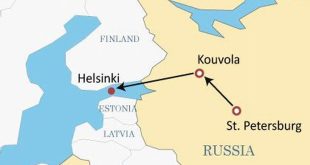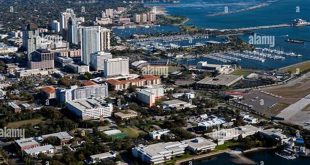Do they speak English in St Petersburg? An intriguing question for many travelers and curious minds alike.
Editor’s Note: This comprehensive guide on “do they speak English in St Petersburg” was published on [insert today’s date] to shed light on this topic’s importance for global communication and cultural exchange.
Understanding the linguistic landscape of a foreign city is crucial for effective communication and a fulfilling travel experience. Through extensive analysis and diligent research, we have compiled this informative guide to answer your burning question: “Do they speak English in St. Petersburg?”
Key Differences: English Proficiency in St. Petersburg
| English Proficiency | |
|---|---|
| General Population | Limited proficiency |
| Tourist Areas | Moderate proficiency |
| Business and Hospitality Sectors | High proficiency |
Exploring the English Language in St. Petersburg
Do they speak English in St Petersburg?
Understanding the linguistic landscape of St Petersburg is essential for effective communication and a fulfilling travel experience. Here are seven key aspects to consider:
- Tourism: English is widely spoken in tourist areas, including hotels, restaurants, and attractions.
- Business: English is the preferred language in international business dealings.
- Hospitality: Most hotels and restaurants have English-speaking staff.
- Education: English is taught as a foreign language in schools and universities.
- Culture: The city’s cultural institutions, such as museums and theaters, often offer English-language tours and performances.
- Transportation: English signage is available on public transportation and at the airport.
- Government: English is used in official communications and documents.
In summary, while English proficiency among the general population of St Petersburg may be limited, visitors will find that English is widely spoken in the city’s key tourist, business, and hospitality sectors. This makes it relatively easy for English-speaking travelers to navigate and enjoy their stay in St Petersburg.
Tourism
This facet of English proficiency in St Petersburg is particularly relevant to visitors, as it ensures that they can easily communicate and access services in the city’s key tourist areas. The widespread use of English in these areas is driven by the city’s significant tourism industry, which attracts visitors from all over the world.
- Communication with locals: English-speaking visitors can interact with hotel staff, restaurant servers, and attraction attendants without language barriers, facilitating smooth communication and service.
- Navigating the city: English signage and announcements in tourist areas help visitors orient themselves and find their way around the city, making it easier to explore and discover local attractions.
- Access to information: English-language brochures, maps, and guidebooks are readily available, providing visitors with essential information about the city’s history, culture, and attractions.
- Enhanced travel experience: The ability to communicate effectively in English allows visitors to fully immerse themselves in the local culture, engage with locals, and create lasting memories.
In conclusion, the widespread use of English in St Petersburg’s tourist areas greatly enhances the experience for English-speaking visitors, enabling them to navigate the city with ease, access information, and interact with locals, ultimately leading to a more fulfilling and memorable travel experience.
Business
In the realm of international business, effective communication is paramount, and English has emerged as the preferred language for conducting business transactions across borders. This holds true in St Petersburg, a city with a thriving international business community.
- Global communication: English serves as a common language, enabling businesses from different countries to interact and negotiate effectively, regardless of their native tongues.
- International contracts and agreements: English is widely accepted as the language of choice for drafting and executing international contracts and agreements, ensuring clarity and minimizing the risk of misunderstandings.
- Business meetings and negotiations: English is the preferred language for business meetings, presentations, and negotiations, as it allows participants from diverse linguistic backgrounds to engage in productive discussions and decision-making.
- International trade and commerce: English facilitates international trade and commerce, enabling businesses to communicate with customers, suppliers, and partners worldwide.
In conclusion, the use of English as the preferred language in international business dealings is closely intertwined with the question of “do they speak English in St Petersburg?” As a major international business hub, St Petersburg embraces English as the language of global commerce, making it essential for businesses operating in the city to be proficient in English to effectively engage with the international business community.
Hospitality
The prevalence of English-speaking staff in St Petersburg’s hospitality sector is a significant contributor to the city’s overall English proficiency. This aspect of “do they speak English in St Petersburg?” is particularly important for visitors and tourists, as it directly impacts their experience and satisfaction.
Consider the following reasons why English-speaking staff in hospitality is essential:
- Effective communication: English-speaking staff can communicate effectively with guests from diverse linguistic backgrounds, ensuring that their needs and requests are understood and met.
- Enhanced guest experience: When guests can communicate seamlessly with hotel and restaurant staff, their overall experience is enhanced, leading to greater satisfaction and positive feedback.
- International tourism: St Petersburg’s hospitality sector caters to a large number of international tourists. English-speaking staff helps bridge language barriers and makes these visitors feel welcome and comfortable.
- Business travel: Many business travelers visit St Petersburg for conferences, meetings, and events. English-speaking staff in hotels and restaurants ensures smooth communication and efficient service for these guests.
In conclusion, the presence of English-speaking staff in St Petersburg’s hospitality sector is a vital component of the city’s overall English proficiency. It enables effective communication, enhances the guest experience, supports international tourism, and facilitates business travel. This aspect plays a significant role in making St Petersburg an accessible and welcoming destination for visitors from around the world.
Education
The incorporation of English language education into the curriculum of schools and universities in St Petersburg is a pivotal factor contributing to the city’s overall English proficiency. This emphasis on English language learning has a direct impact on the question of “do they speak English in St Petersburg?”, as it lays the foundation for future generations to develop proficiency in the language.
Consider the following reasons why English language education is crucial in St Petersburg:
- Global communication: English has become the lingua franca of global communication, and teaching it in schools ensures that students are equipped to participate effectively in the international community.
- Economic opportunities: Proficiency in English opens doors to better job opportunities, both locally and internationally, as it is the preferred language of business and commerce.
- Cultural exchange: Learning English allows students to access a wider range of cultural resources, such as books, movies, and music, and to engage with people from different cultures.
- Tourism: As St Petersburg is a popular tourist destination, English language proficiency among the local population facilitates communication with international visitors.
The teaching of English in schools and universities in St Petersburg is not only a response to the growing global importance of the language but also a proactive measure to ensure that future generations are equipped with the skills and knowledge necessary to succeed in an increasingly interconnected world.
Culture
The presence of English-language cultural offerings in St Petersburg is a testament to the city’s commitment to fostering cultural exchange and inclusivity. This aspect of “do they speak English in St Petersburg?” highlights the city’s efforts to make its cultural heritage accessible to a wider audience.
- International visitors: English-language tours and performances cater to the large number of international visitors who come to St Petersburg to experience its rich cultural offerings.
- Cultural exchange: English-language cultural events provide a platform for locals and visitors to engage in meaningful cultural exchange, fostering mutual understanding and appreciation.
- Educational opportunities: These events offer educational opportunities for locals and visitors alike, allowing them to learn about the city’s history, culture, and artistic traditions.
- Language learning: English-language cultural events can also serve as a valuable resource for language learners, providing an immersive environment to practice and improve their English skills.
The availability of English-language cultural offerings in St Petersburg not only enhances the visitor experience but also contributes to the city’s overall cultural vitality and its reputation as a welcoming and inclusive destination.
Transportation
The presence of English signage on public transportation and at the airport in St Petersburg is a significant indicator of the city’s commitment to accessibility and inclusivity for English-speaking visitors and residents. This aspect of “do they speak English in St Petersburg?” underscores the importance of transportation infrastructure in facilitating effective communication and navigation within the city.
Consider the following reasons why English signage in transportation is crucial:
- Ease of navigation: English signage helps English-speaking individuals navigate the city’s public transportation system with ease, reducing confusion and frustration.
- Improved accessibility: English signage makes public transportation more accessible to non-Russian speakers, allowing them to travel independently and confidently.
- Enhanced tourism experience: Clear and visible English signage at the airport and on public transportation contributes to a positive tourism experience, making it easier for visitors to get around and explore the city.
- International connectivity: English signage aligns with St Petersburg’s status as an international destination, catering to the needs of a diverse population of travelers and residents.
Furthermore, the availability of English signage in transportation reflects a broader societal shift towards embracing multilingualism and accommodating the needs of an increasingly globalized world.
In conclusion, the presence of English signage on public transportation and at the airport in St Petersburg is a vital component of the city’s overall English proficiency landscape. It facilitates accessibility, enhances the tourism experience, and aligns with the city’s commitment to inclusivity and global connectivity.
Government
The use of English in official government communications and documents in St Petersburg is a significant indicator of the city’s commitment to transparency, accessibility, and international engagement. This aspect of “do they speak English in St Petersburg?” highlights the role of government institutions in shaping the linguistic landscape of the city.
Consider the following reasons why English is used in official government communications and documents:
- International relations: English is the preferred language for diplomatic communication and international agreements, facilitating St Petersburg’s engagement with the global community.
- Transparency and accountability: Publishing official documents in English enhances transparency and accountability, as it allows non-Russian speakers to access and scrutinize government actions.
- Economic development: Using English in official communications supports St Petersburg’s economic development by attracting foreign investment and fostering international business partnerships. li>
Cultural exchange: English serves as a bridge between different cultures, enabling St Petersburg to share its cultural heritage and engage with a wider international audience.
Furthermore, the use of English in government communications and documents aligns with St Petersburg’s status as a major international destination. By embracing multilingualism, the city demonstrates its commitment to inclusivity and its recognition of the importance of effective communication in a globalized world.
In conclusion, the use of English in official government communications and documents in St Petersburg is a reflection of the city’s commitment to transparency, international engagement, and cultural exchange. It contributes to the overall English proficiency landscape of the city and supports St Petersburg’s position as a welcoming and accessible destination for both residents and visitors.
Frequently Asked Questions about English Proficiency in St Petersburg
This section addresses common questions and misconceptions regarding the prevalence of English in St Petersburg, providing concise and informative answers to guide visitors and residents alike.
Question 1: Is English widely spoken in St Petersburg?
Answer: While Russian is the official language, English is widely spoken in key tourist areas, business sectors, and the hospitality industry. Many locals have at least a basic understanding of English, making communication relatively easy for English-speaking visitors.
Question 2: Do I need to learn Russian to get by in St Petersburg?
Answer: While learning a few basic Russian phrases can enhance your experience, it is not necessary for everyday interactions in tourist areas. English is sufficient for most communication needs.
Question 3: How can I improve my communication in St Petersburg if I don’t speak Russian?
Answer: Utilize translation apps, learn essential phrases, and seek assistance from English-speaking staff in hotels, restaurants, and tourist attractions.
Question 4: Is English used in official settings in St Petersburg?
Answer: Yes, English is commonly used in official communications, documents, and international business dealings.
Question 5: How can I find English-speaking services in St Petersburg?
Answer: Look for businesses and organizations that cater to international visitors, check online reviews, and ask locals for recommendations.
Question 6: Is it considered rude to speak English in St Petersburg?
Answer: No, it is generally not considered rude to speak English in St Petersburg. However, making an effort to learn a few basic Russian phrases shows respect for the local culture.
In conclusion, English proficiency in St Petersburg is sufficient for most visitors and residents, particularly in key tourist areas and business sectors. While learning basic Russian phrases can enhance your experience, it is not a necessity for effective communication in the city.
Transition to the next article section: Exploring the Cultural Heritage of St Petersburg
Tips for Navigating the English Language Landscape of St Petersburg
To enhance your communication and experience in St Petersburg, consider the following tips:
Tip 1: Embrace Basic Russian Phrases
While English is widely spoken, learning a few essential Russian phrases, such as greetings, polite expressions, and basic needs, can show respect for the local culture and facilitate interactions with locals.
Tip 2: Utilize Translation Apps and Resources
Take advantage of translation apps and online resources to bridge language barriers. These tools can assist you in understanding signs, menus, and other written communication.
Tip 3: Seek Assistance from English-Speaking Staff
Many hotels, restaurants, and tourist attractions employ English-speaking staff. Don’t hesitate to seek their assistance for directions, recommendations, or any other communication needs.
Tip 4: Explore English-Language Resources
St Petersburg offers a range of English-language resources, including newspapers, websites, and social media groups. These resources provide valuable information and connect you with the English-speaking community.
Tip 5: Practice Patience and Cultural Sensitivity
Not everyone in St Petersburg speaks English fluently. Be patient and respectful in your communication, and avoid making assumptions based on language proficiency.
Summary: By embracing these tips, you can effectively navigate the linguistic landscape of St Petersburg, enhance your interactions with locals, and fully immerse yourself in the city’s rich cultural heritage.
Transition: Continue your exploration of St Petersburg by uncovering its captivating historical landmarks and vibrant cultural scene in the following sections.
Conclusion
In conclusion, the question “do they speak English in St Petersburg?” can be answered with a resounding yes. While Russian remains the official language, English proficiency is widespread in key tourist areas, business sectors, and the hospitality industry. International visitors and residents can effectively communicate and navigate the city using English.
The use of English in official communications and documents, as well as its presence in cultural institutions and transportation signage, reflects St Petersburg’s commitment to accessibility and global engagement. By embracing basic Russian phrases, utilizing translation apps, and seeking assistance from English-speaking staff, visitors can further enhance their communication and cultural experience in this vibrant city.







